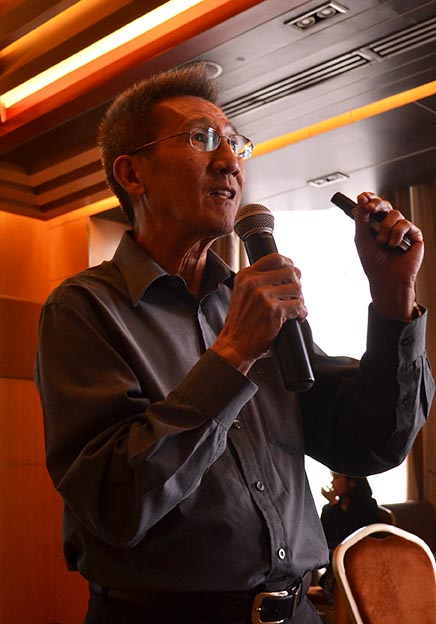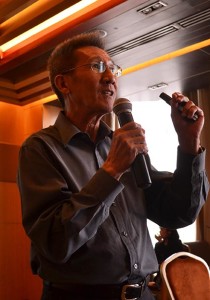

The Philippine Ports Authority (PPA) will launch in December an updated version of its rule book on safety, health, and environmental management (SHEM), which will add new substances to the dangerous goods list and incorporate a requirement for vessels carrying such shipments to issue a notice of arrival.
The updated PPA SHEM, also called the Orange Book, introduces new regulations in place of outdated ones, according to PPA Safety Specialist Noli Villanueva in a recent presentation during the joint Philippine International Seafreight Forwarders Association, Inc.-PortCalls forum on New Rules on Handling Dangerous Goods and other Policies Impacting Philippine Shippers.
Villanueva explained that the Orange Book took its name from the United Nations Recommendations on the Transport of Dangerous Goods, also called the Orange Book.
Villanueva said PPA signed an agreement with the German Technical Cooperation in 2014 to review and update the SHEM. The revised version was signed by the PPA Board on October 30.
The PPA Orange Book is divided into three volumes: Volume I: Safety and Health in Ports; Volume II: Environmental Management in Ports; and Volume III: Transport, Handling and Storage of Dangerous Goods in Ports.
In Volume III, amendments include the addition to the dangerous goods list of other substances which have been identified as “Health Hazard” under Class 9, Miscellaneous Dangerous Substances and which were not included in the previous PPA regulations. These substances include urea, soda ash, clinker, and fertilizer that contains nitrate compound.
The revised manual also adds the requirement to use salvage packaging as a precaution in the event of dangerous goods spillage or leakage.
Moreover, it requires the ship master, shipping agent, or shipping representative to submit a signed Dangerous Goods Manifest to the PPA to alert the agency to be prepared to handle the incoming toxic shipments.
Requirements pertaining to sizes and measures of markings, labels, and placards of the different classes of dangerous goods have also been added, and the responsibilities of PPA Port Management Offices, Port District Offices, cargo handling operators and terminal operators, and other stakeholders who handle dangerous goods amended.
The Orange Book also includes an Emergency Plan and Response Program as well as Emergency Information lifted from the Port Safety, Health and Environmental Management (PSHEM) Code and IMO Recommendation on the Safe Transport of Dangerous Goods and Related Activities in the port areas.
As for Volume I, changes include those concerning the conduct of annual risk assessment, accident/incident reporting to the Regional Labor Office (DOLE), identification of areas for the use of personal protective equipment, standardized safety signage, and enhanced emergency preparedness and response procedures.
The revised rules also tackle the designs of passenger terminal buildings so that these designs conform to the Persons with Disability Law, R.A. 7277, Magna Carta for Disabled Persons, and Batas Pambansa 344, or the Accessibility Law.
As for environmental management, amendments include provision of shore reception facility in all baseports and private ports under PPA, mandatory discharge of wastes into the reception facility, and ambient air quality monitoring. – Roumina Pablo




